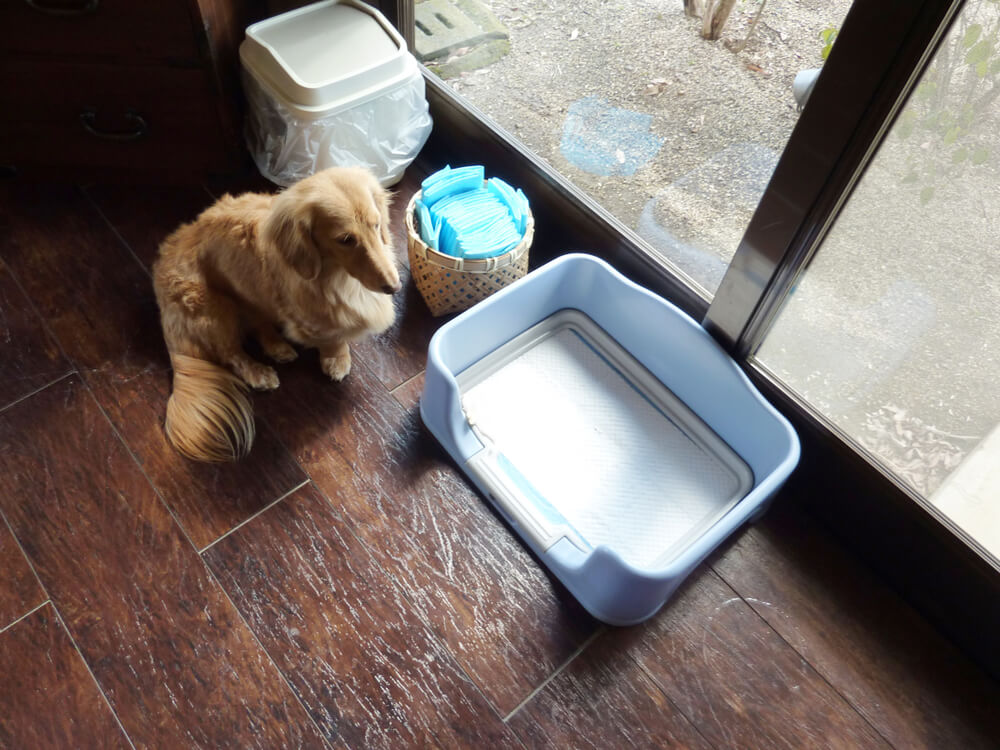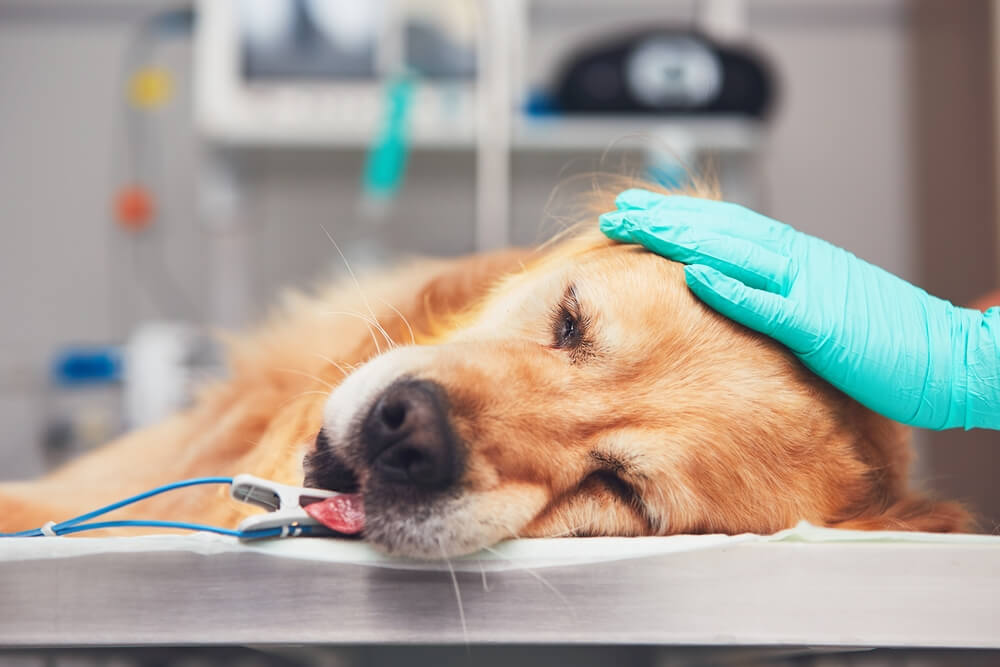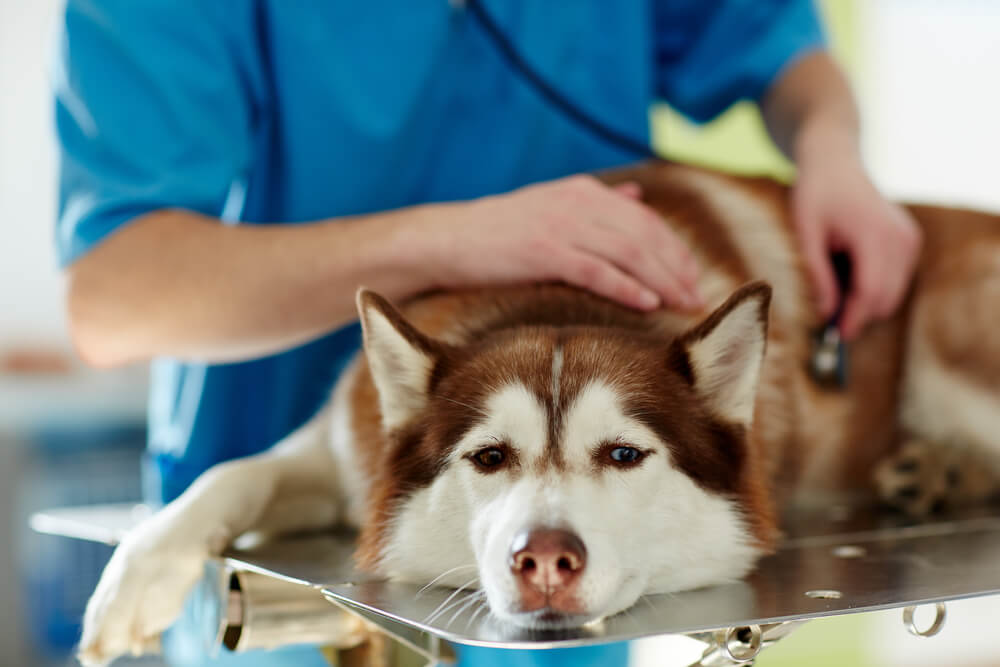What Should I Do If My Dog Has Blood In His Poop?

Table of Contents
Listen To The Article
Introduction to What Should I Do If My Dog Has Blood In His Poop?
Dog poop (or “stool”) can tell us a lot about a dog’s health.
Changes in color, consistency, and frequency of your dog’s poop can be one of the first signs of illness.
One of the most concerning changes you may notice is blood in your dog’s poop.
If your dog is pooping blood, it’s helpful to have an idea of what might have caused it and to know what to do.
The first thing you should do if you find blood in your dog’s stool, whether the stool is formed or loose (like diarrhea), is to call your veterinarian.
You can save yourself and your veterinarian time by knowing how to describe your dog’s bloody stool.
Determining if it truly is blood and what type of blood you’re seeing can help narrow down the possible causes.
First, make sure it is blood and that your pet didn’t eat anything unusual that contained red dyes.
They could possibly be passing something through their digestive system that they ate, like lipstick or a box of red hot tamales.
If you are unsure, try wiping a bit on a paper towel to get a better look.
If you find it is blood, you will want to note the color of the blood and call your vet right away.

Why Is Your Dog Pooping Blood?
Seeing blood in your dog’s poop is alarming, and it can be caused by many different things.
- Eating Something Bad or a Switching to a New Food
- Bloody poop can be a consequence of something affecting your dog’s digestive tract.
Common conditions affecting the digestive tract include inflammation that’s called “gastroenteritis,” or “hemorrhagic gastroenteritis” when blood is also present.
Either of these can occur when your dog has eaten something he or she should not have.
This can include non-food items, such as:
- Bones
- Sticks
- Toys
- Toxins
- Garbage
It can also occur when dietary changes have been made, such as when a new food, treat or chew toy is introduced, or when your dog has eaten another pet’s food.
Infections, Parasites, or Cancer That Affects the GI Tract
Other conditions that can affect the digestive tract, leading to bloody poop, include:
- Infections (bacteria or viruses such as parvovirus)
- Parasites (intestinal worms, coccidia, giardia)
- Cancer, in some cases
- Diseases or Issues That Affect Blood Clotting
- Bloody poop can also be seen with conditions “outside” the digestive tract.
This may include issues that affect normal blood clotting, such as:
- Bleeding disorders
- Toxins
- Liver disease
- Kidney disease
- Diseases of the immune system
- Hormonal disorders
- Cancer

What Does Blood in a Dog’s Poop Look Like?
The bloody stool can appear in several different ways.
The color and appearance of the blood help determine which part of the digestive tract the blood is coming from.
Hematochezia
Is bright red blood. This type of bleeding occurs in the lower digestive tract or colon and indicates a specific set of conditions.
If you notice a single streak of red blood in your dog’s stool, and the rest of his poop is normal, it might be a fluke.
Consistent bleeding or large amounts of blood indicate a more serious problem.
Severe conditions that can cause bloody stool or bloody diarrhea include viral and bacterial infections, parvovirus, hemorrhagic gastroenteritis, and possibly cancer.
Melena
Is a dark, sticky, tarry stool, almost jelly-like. This blood has been digested or swallowed, indicating a problem in the upper digestive tract.
Some dogs have darker stool than others, depending on diet and other factors.
If it looks darker than normal or shows any major changes in color or appearance, contacts your veterinarian. Causes include parasites and liver cancer.
Dog Is Pooping Pure Blood
It is also important to note that in some cases, you may see your dog pass only blood with no poop.
If the stool is liquid, or the gut is empty, blood may be all that comes out.

What to Do if Your Dog Is Pooping Blood?
If you think your dog has bloody poop, the best thing to do is to call a veterinarian for advice.
In some cases, a conversation over the phone can help determine whether your dog needs to see his vet.
At-Home Care
There are some instances when at-home care may be appropriate.
For instance, eating colored food items such as beets or red-dyed treats can give the false appearance of blood in a dog’s stool.
Think about all of the things your dog may have been exposed to or given in previous days.
This will help you and your vet determine the next best steps.
When to Go to the Vet
If your dog starts pooping blood and also displays any of these symptoms, take them to the vet:
- Seeming weak or lethargic
- Has pale gums (white or pale pink instead of a normal salmon pink color)
- Vomiting
- Refusing food or water
- Becomes unresponsive
This could be a sign of shock and disease that is more serious.

What Is the Treatment for a Dog That’s Pooping Blood?
Since there are several reasons why a dog might poop blood, the treatment will depend on the presumed cause.
After examining your dog, the veterinarian will provide a list of possible causes.
They might need to do blood, urine, and poop testing, as well as x-rays or ultrasound, to identify the cause.
Treating Digestive Tract Upset
In the case of simple digestive tract upset due to dietary changes or inflammation, a veterinarian may prescribe an easily digestible (bland) diet and medications to support your dog’s gut.
Medications may include probiotics, antibiotics, antacids, or other medications.
Treating Dehydration
If your dog appears dehydrated, your vet may also recommend giving your dog fluids.
In the case of mild dehydration, your vet may give fluids under the skin and send your dog home for further care.
In more severe cases, intravenous fluid therapy may be required, along with hospitalization for monitoring and more intensive support.

What if Your Dog Is Pooping Blood and Vomiting?
If your dog is passing blood in its stool and vomiting, see a veterinarian as soon as possible.
Loss of fluid through vomiting along with blood and fluid in the stool can lead to serious and life-threatening dehydration.
This can also be a sign of a more serious underlying disease.
Can My Dog Die From Pooping Blood?
Yes, if the loss of blood through the digestive tract is significant, or it’s combined with significant loss of fluid through vomiting or diarrhea, it can be life-threatening.
Severe dehydration and loss of blood (leading to anemia) can lead to serious consequences for your pet.
This can include shock, having difficulty breathing, internal organ damage, and death if it goes untreated.
It is always best to check with a veterinarian if you are unsure of the status of your dog.

Other Symptoms
Keep an eye out for changes in your dog’s appetite, activity levels, and attitude.
Vomiting, diarrhea, appetite loss, weakness, blood in the urine, and difficulty breathing can all indicate serious conditions that require immediate veterinary intervention.



